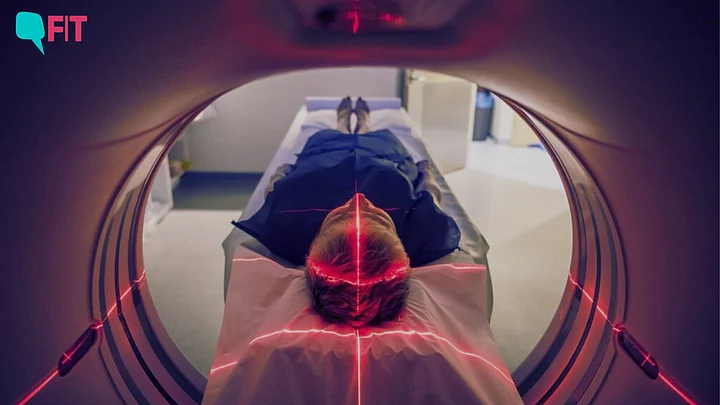“CT Angiography is not supposed to be a screening test. I don’t recommend it as a blanket test for any and every patient.”Dr Sameer Gupta, Senior Interventional Cardiologist at Noida’s Metro Hospital
After a viral video recommending asymptomatic people over the age of 40 to get CT angiography tests took Twitter by storm, netizens have been debating about the pros and cons of CT scans.
FIT reached out to cardiologists to clear the air and here’s what they had to say.
What Triggered The Outrage
A video by Dr Devi Prasad Shetty, Founder & Chairman of Narayana Health, that was uploaded on YouTube on 29 September last year has gone viral on X (formerly Twitter) again this week.
In the video, Dr Shetty recommends that everyone over the age of 40, even if asymptomatic, should get a CT Angiography test done at least once a decade to pre-empt any cardiac diseases.
However, many doctors and medical professionals have condemned this stance.
What is a CT Angiography test?
A computed tomography angiography is a non-invasive radiation-based test to diagnose whether there are blockages in the heart or not.
Unlike a traditional angiography test, the catheter is not inserted in a CT Angio test. However, a dye is injected in the patient for diagnosis.
It is a quick test that can be done on an OPD basis, with no requirement for the patient to be hospitalised or admitted.
However, Dr Rahul Gupta, Senior Interventional Cardiologist at Navi Mumbai’s Apollo Hospitals, mentions that though quick and easy, CT Angiography is not a foolproof test.
It has a 15 percent error margin for positive results and five percent error margin for negative results.
Dr Sameer Gupta, Senior Interventional Cardiologist at Noida’s Metro Hospital, concurs. He tells FIT,
“CT Angiography is not supposed to be a screening test.”
Risks Associated With CT Scans & CT Angiography
Both Dr Rahul and Dr Sameer, pointing to the risks associated with CT scans, say that the test is not benign.
When the patient is injected with the dye for the test, it can:
Cause allergic reactions
Cause kidney problems
Worsen kidney damage, in case the patient already has a creatinine or pre-existing kidney issue
Apart from this, exposure to radiation can also cause multiple diseases. Dr Sameer tells FIT:
“It’s not that getting a CT scan once will lead to cancer developing in the patient. But it’s a cumulative risk, and people should not be subjected to it unnecessarily.”
“Unlike a 2D Echo or a blood test, which do not pose any risks, CT scans do. They cannot be a routine test that anyone and everyone can go through,” adds Dr Rahul.
Who Should Really Be Taking the Test?
Dr Rahul says that the test is only recommended to people who have extremely high risk factors and to patients who are asymptomatic but with a strong pre-test probability for heart blockages.
This includes patients who might have comorbidities, a family history of cardiac diseases, diabetes, or hypertension.
But he adds, age alone is not a deciding factor for a CT Angiography test, as opposed to the claim in the viral video.
“I would not suggest a CT Angio to someone who is 60 and healthy.”Dr Rahul Gupta
Dr Sameer emphasises that a major reason for maintaining this caution is radiation alone.
Studies conducted by the United States National Council on Radiation Protection and Measurements have, in the past, shown that one CT scan emits the same amount of radiation as 100-250 chest X-rays.
In fact, All India Institute of Medical Sciences chief Dr Randeep Gulleria also claimed in 2021 that one CT scan is equal to 300-400 X-rays.
However, his statement was refuted by the Radiology and Imaging Association of India which maintained that technology has substantially reduced this risk and that now one CT scan is equal to 5-10 X-rays.
Dr Sameer and Dr Rahul still say that it’s a risk best avoided.
So What Should Asymptomatic People Be Doing As a Precautionary Measure?
Dr Rahul has a “6E” mantra that he shares with all his patients.
Exercise daily
Eat healthy
Emotional well being of paramount importance
Enough good quality sleep
Exit your addictions
Evaluate your health risks
To this, Dr Sameer adds two more precautionary measures:
Keep your weight in check
Keep screening for other risk factors

